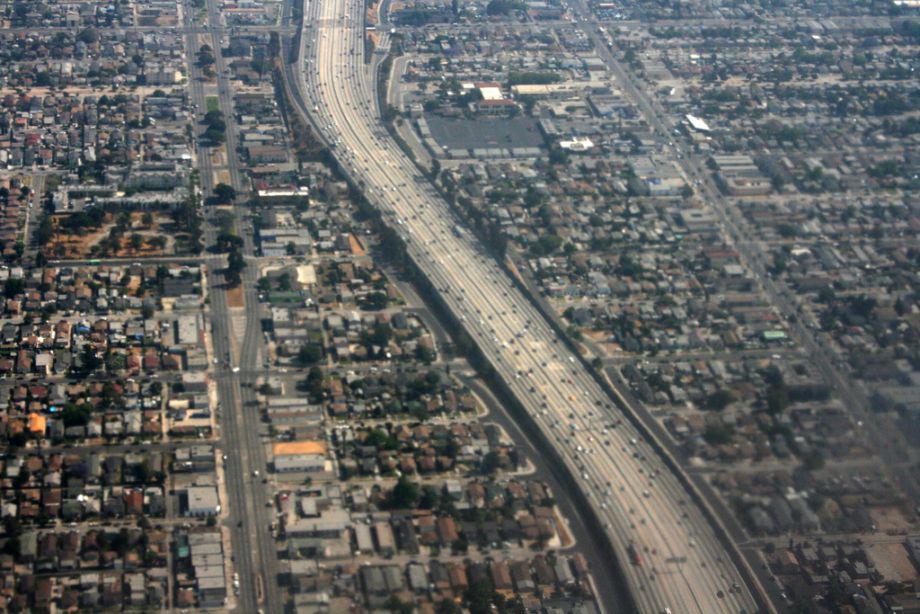Highways may tax more than just our wallets. This week, Reconnecting America, a non-profit focused on transportation and community development, called attention to the extent living near a highways can harm one’s health.
Most alarming? The fact that pregnant women living near highways are more likely to have a miscarriage.
Some 2,000-plus studies published since 1996 alone give us plenty of reasons to believe exhausts from motorized transport contribute to asthma, bronchitis and a constellation of illnesses that shorten lifespans.
But as Reconnecting America points out, one 2009 study, by the EPA’s Rochelle Green and others, found that “pregnant African-American women who live within a half mile of freeways and busy roads were three times more likely to have miscarriages than women who don’t regularly breathe exhaust fumes.”
And this hasn’t been the only study linking reproductive harm to exposure to traffic exhaust, according to Dr. Joan Denton, director of the Office of Environmental Health Hazard Assessment at the California Environmental Protection Agency. This growing group of studies is adding urgency to air quality advocacy efforts that have, in cities like Los Angeles, been active for more than 50 years.

L.A. smog at its best. Credit: Jared Eberhardt on Flickr.
Californian cities, and those of the Inland Empire region in particular, make the adverse effects of air pollution hard to ignore. Consistently ranking at the top of the American Lung Association’s annual list of cities with the worst air quality, these freeway-ensnared areas can no longer rely on pollution regulations alone to combat smog.
“If Southern California is ever to have consistently clean air, we need to take dramatic new steps,” Bonnie Holmes-Gen, the association’s senior policy director in California, told Reconnecting America. “At this point, anything that’s easy has already been done.”
Three doctors who practice in the Inland Empire added emphasis to this point in a group op-ed that ran in the Press-Enterprise in April. “If doctors were in charge of planning our cities, our cities would look very different,” they wrote. “Why? The answer is simple: The epidemic of air pollution and chronic disease in the Inland Empire is fundamentally linked to our built environment and dependence on vehicles… Changing the way we plan our cities can help reduce this burden of disease.”
We all know correlation isn’t causation, but this emerging body of research should at least raise a few red flags, and spark some more penetrating investigative research to discover just how much we are putting at risk when we build residential areas near highways (and vice versa).
For a good primer on the connection between traffic pollution and public health, see this 2011 Scientific American article.




_920_518_600_350_80_s_c1.jpg)




_600_350_80_s_c1.jpg)






